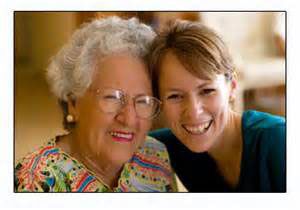
Eldercare: A Major Concern for Today’s Workforce
The AARP Public Policy Institute recently issued a report that reveals an emerging challenge for America’s workers – remaining productively employed while providing care for elderly parents or other relatives. Some of the findings:
- 22% of workers aged 45 to 64 report being eldercare providers – the largest of any age group in the labor force.
- 20% of all female and 16% of all male workers in the S. have assumed some degree of eldercare responsibilities.
- 64% of caregivers admit that eldercare duties have compromised job performance
- Both younger (18-39) and older employees (40+) with eldercare responsibilities are more likely to experience personal health issues.
- Employers lose an estimated $33.6 billion per year in lost productivity from full-time working elder caregivers.
- 19% of recent retirees left the workforce earlier than planned because of overwhelming eldercare challenges.
- The “average” elder caregiver is a 49-year-old woman who works outside the home and spends about 20 hours per week providing hands-on care for up to five years.
- 42% of S. workers have provided some degree of care for an aging parent, relative or friend in the past five years.
- 49% of S. workers expect to be providing eldercare within the coming five years.
- Workers with eldercare responsibilities cut across all racial and ethnic groups.

These startling statistics are predicted to increase in coming years as the population continues to age and longevity increases. The good news is that services for the elderly are also expanding to meet the need and your Employee Assistance Program can connect you with these. Begin by going to our website listed below and select Employee & Family login. You can access the Work/Life portal which contains zip code specific listings of important services for the elderly in your area including:
- Adult daycare centers
- Assisted living facilities
- In-home medical services
- In-home chore services
- Geriatric care facilities
- Senior centers
- Geriatric care managers
- Nursing homes
- Transportation assistance
In addition, you may call the EAP directly to discuss your specific challenges and obtain on-going emotional support.
1.800.252.4555 or 1.800.225.2527
View more newsletters at www.theEAP.com
